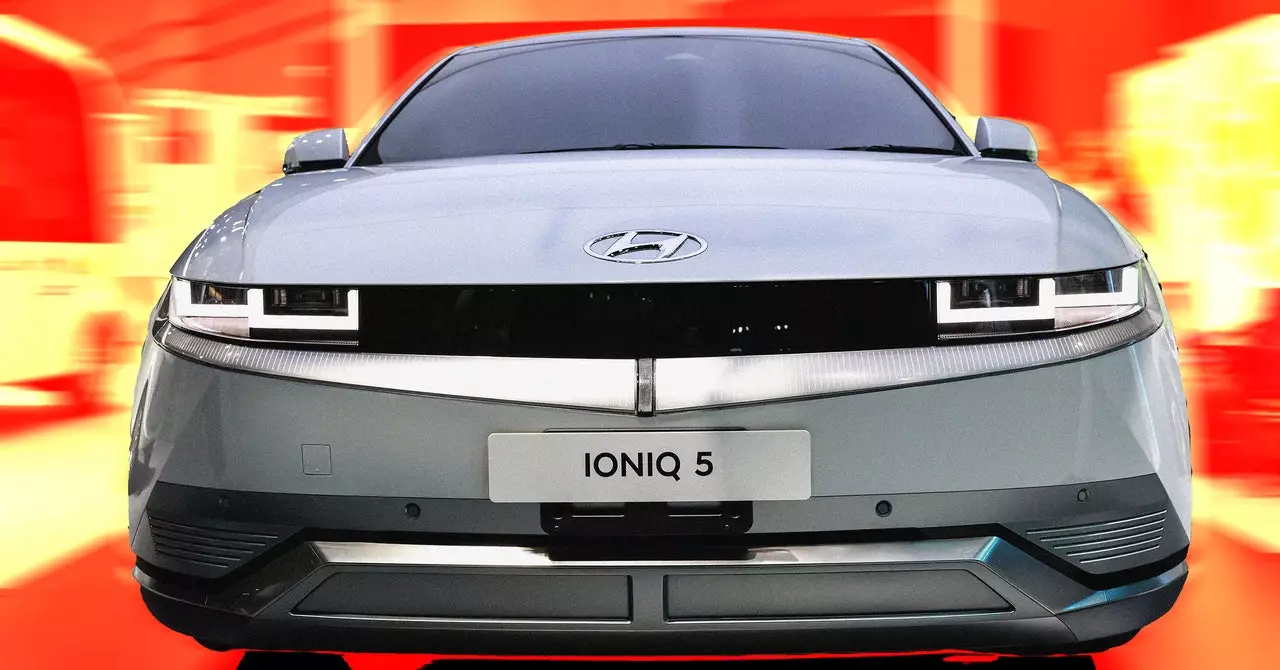In a significant move that is set to reshape the landscape of autonomous vehicles, Waymo has announced a partnership with South Korean automotive giant Hyundai. This collaboration aims to integrate Waymo’s state-of-the-art self-driving technology into a fleet of modified Ioniq 5 electric cars, with plans to launch this service as part of Waymo’s ride-hailing operations by late 2025. This partnership not only underscores the rapid evolution of autonomous driving technology but also raises essential questions about the future of global automotive trade, particularly in light of China’s emerging dominance in the industry.
The announcement made by José Muñoz, the president and global COO of Hyundai Motor Company, marks what he describes as a “first step” in a potentially fruitful partnership. The integration of Waymo’s self-driving technology into Hyundai’s electric vehicles signifies a progressive approach toward leveraging existing strengths in both companies. Hyundai’s reputation for producing innovative, reliable cars aligns seamlessly with Waymo’s entrepreneurial spirit in the autonomous tech sector. Their collaboration is pioneering in the sense that it seeks to address consumer demand for eco-friendly, driverless alternatives in urban transportation.
Muñoz also hinted at further opportunities for collaboration, allowing room for expansion beyond ride-hailing services. This could indeed place Waymo at the forefront of personal vehicle autonomy, a market that remains largely untapped. As more consumers seek mobility solutions that reduce congestion and environmental impact, this partnership puts both firms in a prime position to cater to these evolving market needs.
Yet, this alliance comes at a time of turbulence in the global automotive industry. The geopolitical landscape is rapidly shifting, especially concerning trade relations with China, which has emerged as a powerhouse in auto manufacturing. American and European manufacturers are becoming increasingly wary of China’s competitive edge. The recent measures taken by Western countries— including heightened tariffs and restrictions on Chinese automotive parts— indicate growing concerns surrounding national security and fair trade practices.
The U.S. government has widened the scope of its scrutiny concerning foreign-made automotive technology, particularly when it involves autonomous capabilities. As U.S. Commerce Secretary Gina Raimondo has articulated, the exposure of American roads to potentially manipulated foreign technology presents a significant risk. This apprehension triggers a broader debate on whether autonomous vehicles ultimately provide more security or create new vulnerabilities in the automotive ecosystem.
Although Waymo is poised for growth through its partnership with Hyundai, it also maintains its collaboration with Zeekr, a Chinese automaker owned by Geely. This duality raises eyebrows, particularly when Waymo asserts that the autonomous technology used in their vehicles is distinctly American. The company’s spokesperson, Chris Bonelli, has clarified that the base vehicles from Zeekr contain no intrinsic autonomous capabilities and that installation is handled entirely by U.S. personnel.
This assertion brings to the forefront the complexities involved in cross-border collaborations. Hybrids of technology and international partnerships may provide compelling solutions, but they must navigate the intricate web of regulatory frameworks and geopolitical tension. While Waymo seems committed to ensuring that its autonomous systems are safeguarded from external influences, skepticism lingers.
As Waymo and Hyundai embark on this journey to exploit the potential of autonomous driving, they not only stand to revolutionize how we perceive personal transport but also propose a profound answer to urban environmental challenges. The future may see a transition toward eco-friendly, intelligent vehicles that not only facilitate transport but also contribute to a more sustainable planet.
Waymo’s collaboration with Hyundai is emblematic of a dynamic intersection among technology, automotive innovation, and global trade policy. The challenges posed by international relations and domestic security needs are as pronounced as the excitement surrounding self-driving vehicles. As these partnerships unfold, stakeholders must remain vigilant to ensure that technological advancements are achieved responsibly and ethically. The road ahead is filled with potential but also requires sustainable practices and transparent governance, shaping the landscape of mobility for generations to come.

